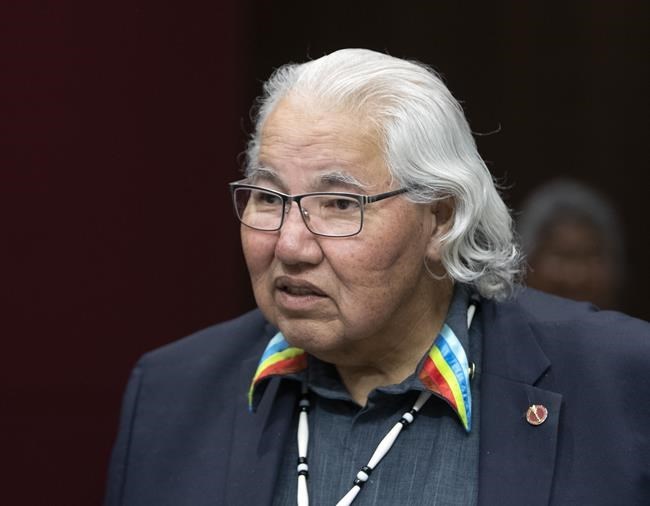OTTAWA — The former chair of the Truth and Reconciliation Commission says Liberal legislation to remove some mandatory minimum penalties from the Criminal Code doesn't go far enough.
Murray Sinclair said during a Senate committee hearing Thursday that Bill C-5 does not go nearly far enough to address the overrepresentation of Indigenous and Black people in the criminal justice system.Â
He said the government has not provided data to justify a "piecemeal approach" that leaves two-thirds of mandatory minimum penalties in place.Â
"The remaining mandatory minimum sentences would continue to restrict the freedom of trial judges to impose the sentence they think appropriate and warranted in the specific circumstances of the case and the individual before them," Sinclair said.
"As a strategy to reduce the overincarceration of Indigenous and Black peoples, Bill C-5 does not go nearly far enough."
Sinclair made the comments at a hearing of the Senate's justice committee, which is studying the bill after the House of Commons passed it in June, just before Parliament took a summer break.
The changes written into the legislation would reverse some of the "tough on crime" measures passed under former Conservative prime minister Stephen Harper.Â
If the Senate passes the bill as it is written, mandatory minimums will be removed from all drug offences, as well as from 20 firearms offences and one tobacco-related offence.
The bill would also allow greater use of conditional sentence orders, meaning that certain offenders could serve their time in the community rather than in an institution, per judges' discretion.Â
A spokesperson for Justice Minister David Lametti said Sinclair raised important issues Thursday.
"We would like to thank former senator Sinclair for his critical work in leading us on the path towards reconciliation," said Chantalle Aubertin. "We agree with his view that systemic discrimination and racism are a reality for too many in Canada's criminal justice system."
The penalties the bill proposes removing make up more than 75 per cent of all admissions to federal custody for offences with a mandatory minimum penalty, Aubertin said, and these have "a disproportionate impact on racialized and Indigenous populations."
Sinclair noted in his testimony that one of the Truth and Reconciliation Commission's calls to action was to eliminate mandatory minimums altogether, and urged the government to "fully implement" that call.
Short of removing mandatory minimums altogether, Sinclair said that senators could amend the bill to give sentencing judges the jurisdiction and authority to ignore the minimums if they provide written reasons for the decision.Â
He said that approach would be preferable to rejecting the bill altogether.Â
And he suggested that judges won't dramatically change the way they approach sentencing. "They will still likely utilize the appropriate principles of sentencing," he said. "What you'll likely see is a change in sentencing back to the way it was before the mandatory minimums were created."
The former senator said that the trust Canadians have in their judges will be determined by the behaviour of judges — "just as the trust people have in the Senate will be based upon how senators behave."
This report by The Canadian Press was first published Oct. 20, 2022.
The Canadian Press




